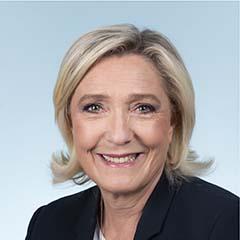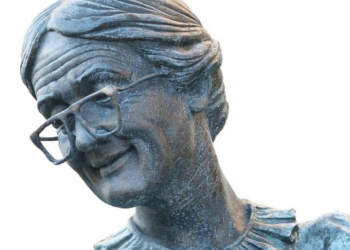As France’s far-right grapples with its future, a stark identity crisis has emerged within its ranks. At the center of the debate are Marine Le Pen, the longtime leader seeking to reinvent the party’s image, and Jordan Bardella, the young rising star advocating for a more hardline approach. Their competing visions highlight deep divisions over strategy, ideology, and leadership, raising questions about the National Rally’s ability to maintain its foothold in French politics. This internal struggle not only shapes the trajectory of the far right but also signals broader challenges for France’s political landscape ahead of upcoming elections.
Marine Le Pen’s Leadership Tested Amid Internal Party Divisions
The leadership of Marine Le Pen faces unprecedented scrutiny as internal fractures widen within the party, exposing a simmering identity crisis. Long seen as the unchallenged face of France’s far right, Le Pen now grapples with growing dissent from younger, more dynamic figures like Jordan Bardella, her designated successor. These tensions reveal fundamental disagreements about the future direction and messaging of the movement, challenging Le Pen’s ability to consolidate her authority. Influential party members argue that a rebranding is necessary to appeal beyond the traditional base, while loyalists hold fast to Le Pen’s established nationalist rhetoric.
At the heart of the dispute lies a clash over strategy and generational change, framed by competing visions that can be summarized as:
- Le Pen’s approach: Emphasis on strong nationalism, economic protectionism, and social conservatism.
- Bardella’s vision: Modernizing the party image to attract younger voters, highlighting issues like climate skepticism and digital sovereignty.
- Party grassroots: Divided opinions, with some favoring continuity and others pushing for radical renewal.
| Leadership Figure | Strength | Weakness |
|---|---|---|
| Marine Le Pen | Proven electoral appeal, clear nationalist stance | Perceived as part of old guard, resistance to reform |
| Jordan Bardella | Youthful energy, fresh messaging | Lacks broad party experience, risk of alienating core supporters |
Jordan Bardella Emerges as a New Face Challenging Far Right Orthodoxy
Jordan Bardella, the young and dynamic leader of the National Rally, is increasingly positioning himself as a progressive force within France’s far right, challenging the long-standing dominance of Marine Le Pen. By attempting to soften the party’s image and appealing to a broader electorate, Bardella seeks to redefine far-right politics, focusing less on outright nationalism and more on issues like economic sovereignty and youth empowerment. His approach signals a generational shift and raises questions about the future direction of the movement.
Key areas where Bardella diverges from traditional far-right orthodoxy include:
- A focus on environmental concerns alongside national priorities
- Emphasis on tech innovation and modernization of France’s industries
- A softer rhetoric concerning immigration, emphasizing integration over exclusion
- Engagement with younger voters through social media and grassroots campaigns
| Leader | Core Strategy | Public Perception |
|---|---|---|
| Marine Le Pen | Hardline nationalism, anti-immigration | Polarizing, traditionalist |
| Jordan Bardella | Modernization, youth outreach | Emerging, reformist |
Strategic Recommendations for Rebuilding Cohesion Within France’s National Rally
To navigate the internal divisions plaguing France’s National Rally, leadership must prioritize open dialogue that bridges generational and ideological gaps. Encouraging collaboration between Marine Le Pen’s established political base and Jordan Bardella’s youth-driven energy could forge a united front capable of appealing to a broader electorate. Emphasizing shared nationalist goals over personal rivalries will be critical, as will the adoption of inclusive messaging that expands beyond traditional far-right listeners. The party should also consider institutional reforms to promote transparency and democratic decision-making, fostering trust and cohesion among its ranks.
Key strategic actions include:
- Holding joint leadership forums to align policy priorities and public narratives
- Launching grassroots campaigns that emphasize collective party identity over individual figures
- Introducing mentorship programs pairing veteran members with emerging leaders for skill and vision transfer
- Rebranding efforts aimed at modernizing the party’s image without alienating core supporters
| Challenge | Recommended Action | Expected Outcome |
|---|---|---|
| Factional infighting | Facilitated leadership retreats | Improved communication and trust |
| Public image polarization | Strategic rebranding campaigns | Broader voter appeal |
| Generational disconnect | Mentorship and cross-generational initiatives | Stronger internal solidarity |
Insights and Conclusions
As the far-right landscape in France continues to evolve, the rivalry between Marine Le Pen and Jordan Bardella encapsulates a deeper identity struggle within the movement. With both figures representing different visions for the party’s future, the coming months will be critical in determining whether the National Rally consolidates its traditional base or charts a new course in French politics. Observers will be watching closely as this internal contest unfolds, shaping not only the party’s direction but also the broader dynamics of France’s political right.
















